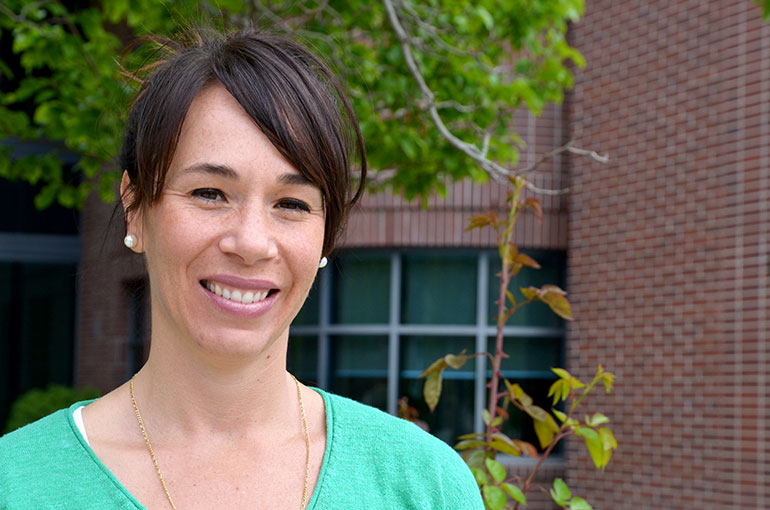UBC Okanagan research shows community and cash motivates
Physical activity is an effective way to help improve the many mental and physical side effects of breast cancer treatment. Yet, studies show up to 70 per cent of breast cancer survivors are not getting enough activity.
This may be about to change thanks to new research from UBC’s Okanagan campus that demonstrates that financial support and incentives are effective in increasing physical activity among breast cancer survivors.
Called Project MOVE, the program offers ‘action grants’—a combination of microgrants up to $2,000 and additional financial incentives—to prompt and sustain physical activity.
“Many of the available programs such as dragon boating, yoga and hiking are seen as exclusive and may not be of interest to all women treated for breast cancer,” says principal investigator, Cristina Caperchione, associate professor at UBC Okanagan’s School of Health and Exercise Sciences. “Our approach supported community-based initiatives designed and implemented by breast cancer survivors themselves. Groups developed their interventions based on their own needs and preferences, and these reflected any unique circumstances and barriers that limited them from being active.”
Caperchione adds that the action grant scheme has long been used to stimulate personal growth and improve access to social and health services. With this in mind, Project MOVE used the microgrant model to make physical activity more accessible and enjoyable for breast cancer survivors.
From can’t to can do
Caperchione and her colleagues invited breast cancer groups to submit microgrant applications, which outlined their physical activity initiatives. A review panel identified successful applicants and provided funding for their proposed activities.
The effectiveness, acceptability and satisfaction of the program were evaluated at 6 and 12 months. More than 86 per cent of the participants were satisfied with their program, 70 per cent learned about new physical activities and more than 96 per cent agreed that Project MOVE was appropriate for breast cancer survivors. Many participants were confident that they would continue with physical activity following positive experiences with the project.
“One of our key findings is that Project MOVE offered an opportunity for women to be active with others in a similar position,” says co-author Joan Bottorff, professor at UBC Okanagan’s School of Nursing. “This fostered social support and helped build autonomy and confidence in their ability to be physically active. The participants changed their outlook from being physically limited to capable.”
Caperchione adds that the benefits of exercise cannot be understated.
“Physical activity has been associated with numerous health benefits for cancer survivors including weight management, reduced pain and fatigue, reduced depression and anxiety, reduced mortality and breast cancer reoccurrence.”
“This approach may lead to similar physical activity interventions for diverse cancer survivors, because it has the potential to accommodate a wide range of interests and needs,” she says.
The study, published in Psycho-Oncology was supported by funds from the Canadian Cancer Society.

Cristina Caperchione, associate professor at UBC Okanagan’s School of Health and Exercise Sciences.
About breast cancer
According to the Canadian Cancer Society, breast cancer is the most common cancer among Canadian women. Most often, breast cancer starts in cells that line the ducts and is the second leading cause of cancer-related deaths.